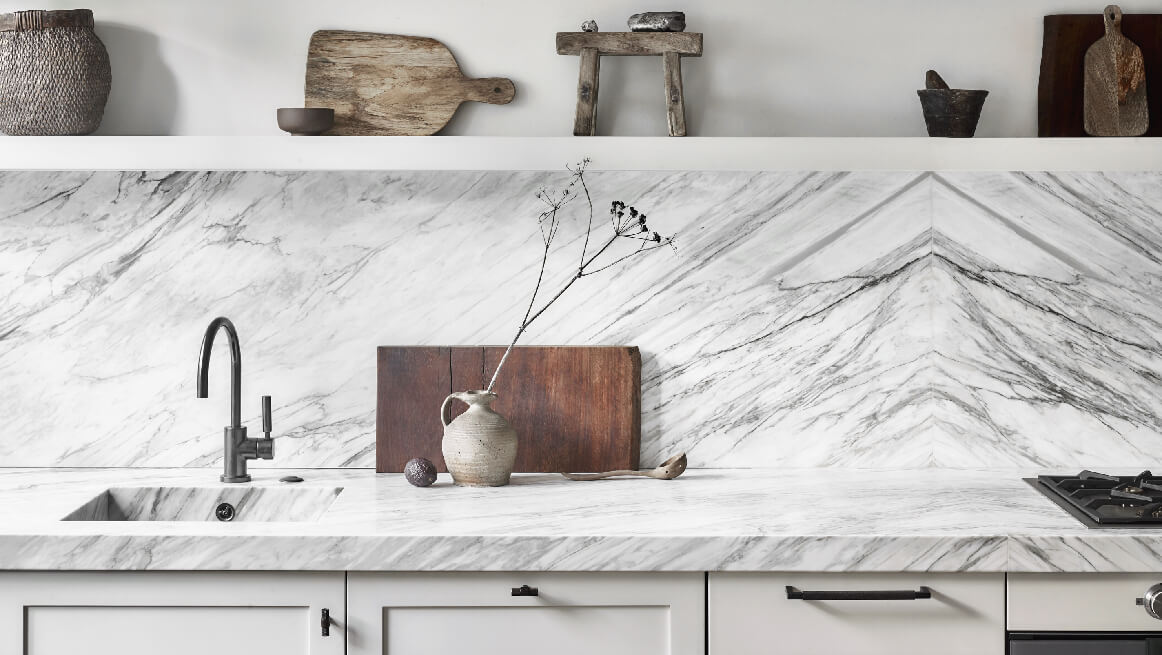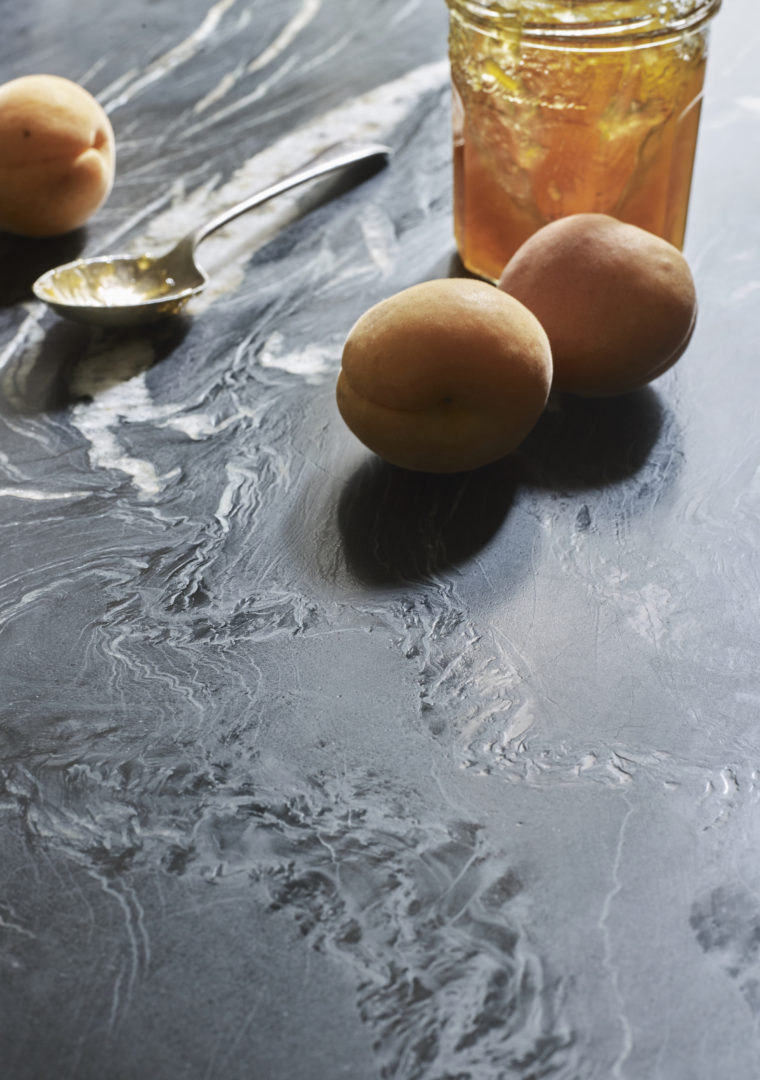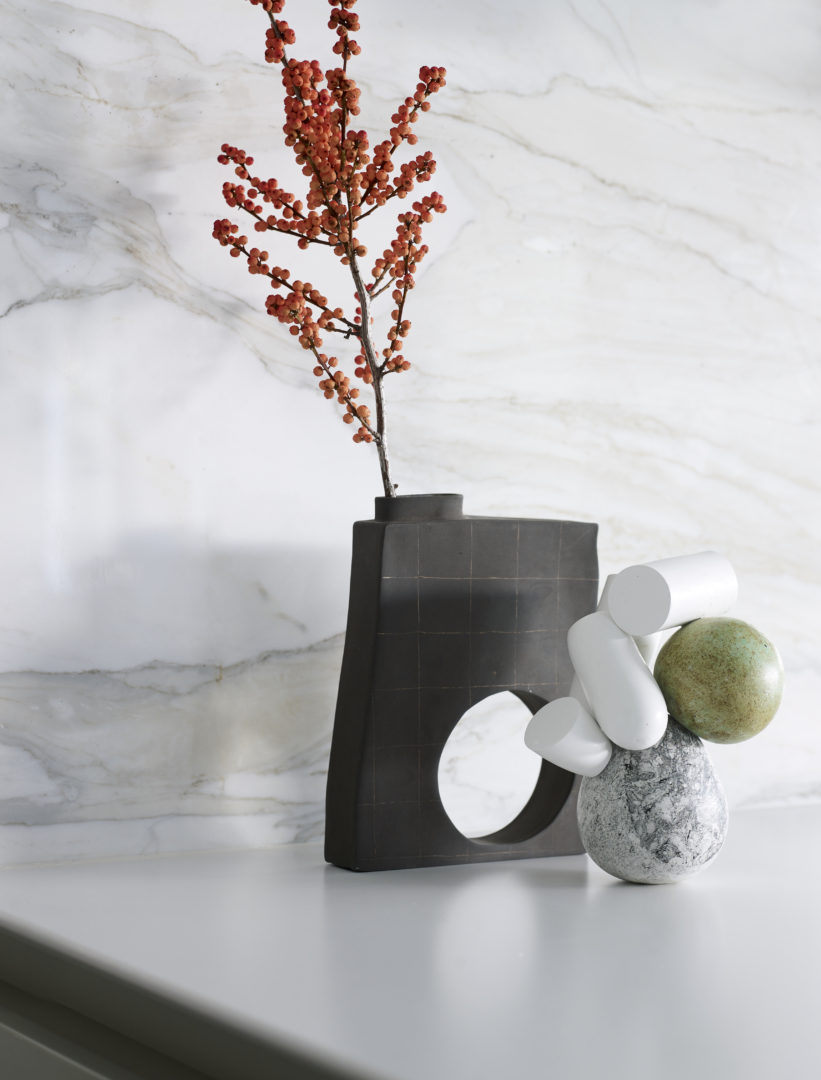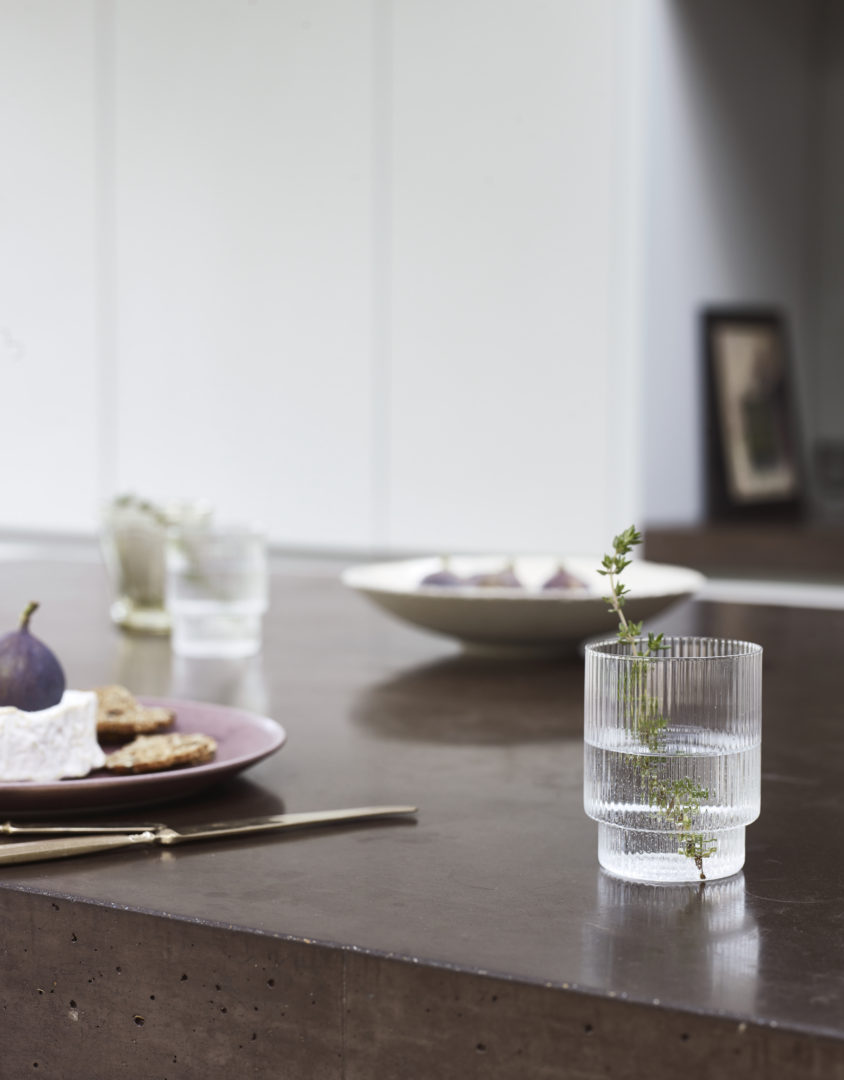Kitchen work surfaces – all you need to know

Kitchen work surfaces need to be practical for your use of them – not everyone has the same requirements. To help you decide which one is right for your luxury kitchen, read our informative guide to get the lowdown on all you need to know about kitchen work surfaces.
Worktops have a significant visual impact on your overall bespoke kitchen design, so they shouldn’t be an afterthought. From luxe materials such as a unique slab of marble, to high-tech, super tough Dekton, there is a vast choice of kitchen work surfaces available. However, what suits you will depend very much on your kitchen design and how you intend to make use of it.
At Roundhouse we can build practically anything into a kitchen work surface, including among many other things; pop-up sockets, charging points for smartphones, lights, herb trays and ice troughs. Do your homework and visit your nearest Roundhouse showroom to see and touch work surfaces in situ. Look at samples and talk to our expert kitchen designers to get the best understanding of what is available. Book an appointment here
What to consider when choosing kitchen work surfaces

Start by thinking about how you use your kitchen, and make a list of questions for example;
- will you have a kitchen island?
- a long run of kitchen cabinetry?
- do you often prepare food with lots of spicy colour in it?
- do you regularly move hot things from hob to oven?
Knowing what you want from your kitchen will help your bespoke designer determine what work top material is best for you.
Remember you don’t have to have the same work surface everywhere, and different types of kitchen work surfaces suit various cooking methods and foods in different ways; certain materials don’t work as well with heat. The best option is a combination of beauty and practicality.
It goes without saying that in a Roundhouse contemporary kitchen your kitchen work surfaces must look as beautiful as the rest of your made to measure design, and our kitchen designers often use a mix of engineered stone and gorgeous natural stone on a kitchen island, for instance. Go here for more ideas for beautiful worktops
The lowdown on kitchen work surfaces – materials


Engineered stone work surface
A work surface must look beautiful as well as being practical and engineered stone gives a made to measure kitchen a uniform look. Although there is no one work surface that ticks everyone’s boxes, engineered stone ticks more than most as it has the advantage of a huge colour range which offers enormous flexibility. Engineered stone worktops require simple routine care. To clean, we recommend using warm water and a mild detergent or a quality spray and wipe type cleaner using a microfiber cloth in order to maintain the work surface.
Natural stone worktop
Choosing a beautiful, rare and unusual natural stone such as marble or granite for your bespoke kitchen worktop means that once it’s quarried the same piece will never be found again. You will have something not only beautiful but entirely unique. It’s very much on trend to use a beautiful natural stone on an island for instance, and another type of work surface elsewhere.
Stainless Steel work surface
Many Roundhouse bespoke kitchen clients choose stainless steel and those who choose it love it. A stainless steel work top may not be to everyone’s taste though, as evidence of use builds up over time and the shiny surface that you start out with becomes patinated.
Glass work top
Toughened glass is a durable material and, with added lighting, can be very dramatic and create an atmospheric look. Its reflective qualities boost the light and increase a sense of space. Know that it shows water marks, needs wiping often and can show scratches, although they can be polished out. An advantage is that it comes in one piece so no need for joints.
Wood worktop
Natural wood brings warmth to a custom-made kitchen and there is so much to choose from; solid Wenge, Black Walnut or Wholestave Oak to name just a few. Roundhouse kitchen designers often use wood as a breakfast bar, or dining surface and it’s harder wearing than you might think, providing you look after it. It’s best not to use it in areas that get too wet and it needs to be oiled to protect it.
Dekton work surface
Dekton is a super durable, sophisticated material, which is a blend of the raw materials used to produce the latest glass and porcelain as well as the highest quality quartz worksurfaces. It withstands high temperatures and is the most scratch and stain resistant surface available.
Corian®work surface
Corian® is a solid surface material, that feels warm to the touch with a natural lustre. It is a blend of minerals and acrylic which creates a stone-hard surface that can be shaped to meet any design or dimension. It’s non-porous surface makes it stain resistant. It also has a high heat resistance, though placing hot pans directly onto the surface is not recommended. Marks and stains can be removed with a Scotchbrite® pad and household cleaner.
Concrete work surface
Concrete introduces an architectural, structural element to a luxury kitchen. Its smooth polished surface contrasts with the latest textured finishes to bring an inherently pleasing tactile quality to the overall design. A cast in situ polished concrete work surface is a longish process. It needs to be mixed and poured on site and then a couple of weeks to set before polishing. It is not as hardwearing as composite stone and no more stain resistant than marble, so it must be carefully looked after. It is a long installation process; a minimum of 28 days. As a natural material, variations in colour and tone can be expected. The surface patina is a result of the process and cannot be ‘designed’, making each concrete work surface unique. The patina gives each piece an identity, rather like a fingerprint.



